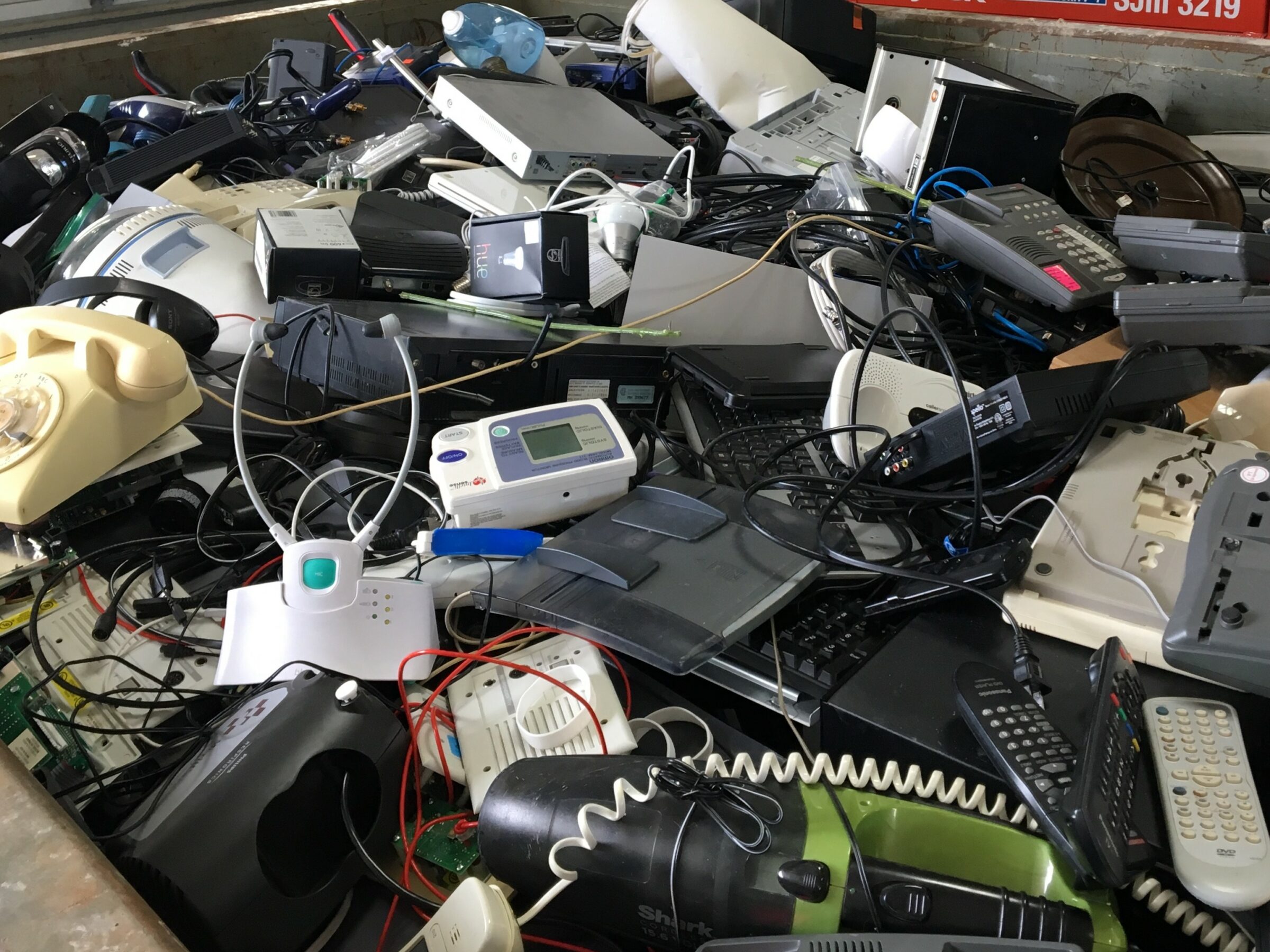Recycling Event Success

By Melanie Stewart
We were fortunate to be able to reschedule the recycling event in August, and we anticipated many of you did some extra spring cleaning while you were being safe by staying home. We were right—more than 400 people dropped off:
- 861 pounds of VHS tapes, DVDs, CDs, and floppy disks
- 15,681 pounds of electronics
- 12,876 pounds of paper for shredding
- 300 pounds of alkaline batteries
- 28,943 total pounds diverted from the landfill. That impact?*
- 74 trees saved
- 393 gallons of oil not used
- 882,742 hours of electricity saved
- 11,949 gallons of water
You also donated:
- 600lbs of food/toiletries and $2,555 to the Maverick Food Pantry
- 161 eyeglasses donated to the TEI clinic
- 5lbs pop tabs to Ronald McDonald House (which helps to pay their electric bill)
A big THANK YOU to the volunteers that were able to help at this two day event; Kristina Hughes, Dakota Stock, Deb Bass, Ryan Lawson, Anita Soto, Rosie Zweiback, Peggy Heires, Tricia Saxton, Peggy Schneider, Julie Sommer, Brian Dykstra, Kyle Dykstra, Andy Balus, Brian Spencer, and Melanie Stewart.
While we love being able to help you properly recycle these hard to recycle items, and protect your identity by shredding paper, we’ve been noticing a trend—every year our totals increase. For the last two years, the weights of the electronics we collected were almost double what they were the two years before that (~8,000lbs in both 2017/18 and ~15,000lbs in 2019/2020). All other categories have increased in weight as well. We’re also receiving more items—not only have we filled more containers, but older electronics, especially TVs, were heavier than the new models. As we receive newer items, we know they weigh less, meaning the quantity of items received has increased.
A lot of this is due to planned obsolescence. To reduce your environmental impact and save your money, do some research before buying products to see how long the product will last and consider spending a little more for something that will last longer. Other ways to reduce include requesting electronic/online versions of statements, removing yourself from mailing lists, and upgrading to rechargeable batteries. Reducing waste is the most important step, recycling is the last resort.
*Estimated impact; actual totals may vary slightly depending on the exact mix of electronics and type of paper dropped off.
